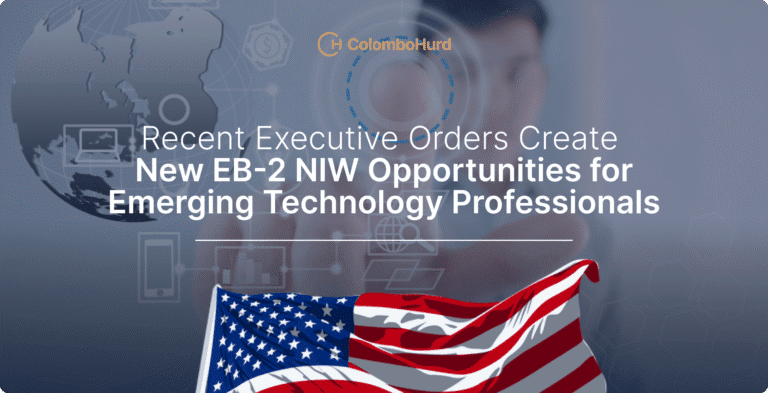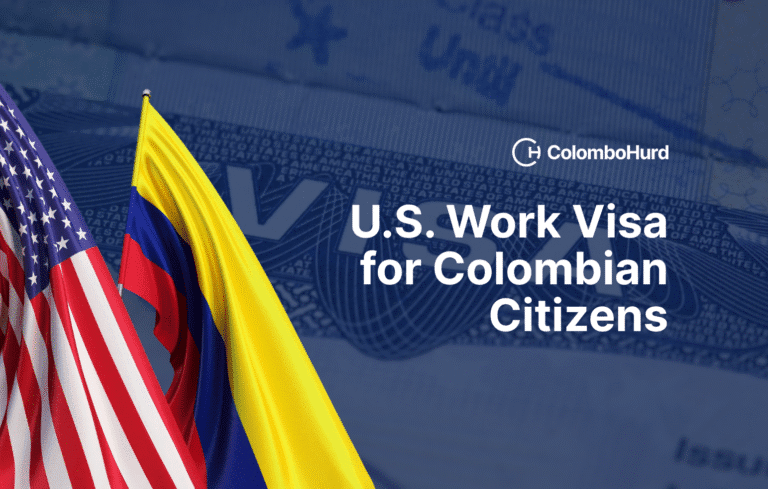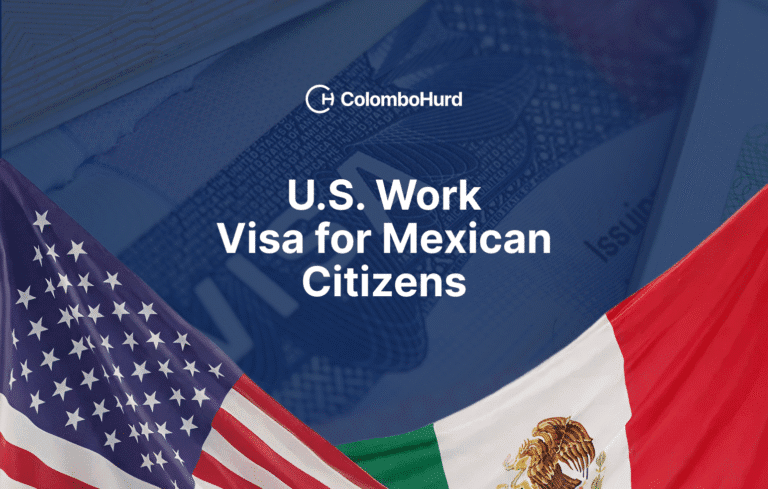President Donald Trump’s recent Executive Orders, establishing the “President’s Council of Advisors on Science and Technology” and “Removing Barriers to American Leadership in Artificial Intelligence,” offer new opportunities for EB-2 National Interest Waiver (NIW) petitioners in high-demand emerging technology fields. These executive orders highlight the importance of transformative technologies like artificial intelligence, quantum computing, and advanced biotechnology in maintaining America’s competitive edge and leadership in the global technological landscape.
Federal Initiatives Driving U.S. Competitiveness in Emerging Technology Fields
The importance of these emerging technology fields has been highlighted by the current administration’s federal initiatives.
President Donald Trump’s recent Executive Order establishing an advisory council on science and technology, “President’s Council of Advisors on Science and Technology,” highlights the administration’s focus on encouraging U.S. competitiveness in emerging technology fields.
The goal of this executive order is “to unite the brightest minds from academia, industry, and government to guide our Nation through this critical moment by charting a path forward for American leadership in science and technology.” In reality, the “brightest minds” belong to professionals from all over the world, and excluding foreign nationals would undermine the very goal of fostering American leadership in science and technology.
In fact, many science and technology leaders in the United States throughout our country’s history have been immigrants. Elon Musk, for example, was born in South Africa and has since founded SpaceX and Tesla in the U.S, while Albert Einstein, arguably the most famous scientist of all time, was an immigrant who was born in Germany and gained U.S. citizenship in 1940. Clearly, the United States has long been a hub for innovation, attracting top talent in cutting-edge fields from around the world.
To further solidify the United States’ position as a hub for innovation, President Trump’s recent Executive Order “Removing Barriers to American Leadership in Artificial Intelligence” is aimed at promoting AI development free from ideological bias and maintaining global AI dominance. This order revokes previous AI policies and directives that were deemed barriers to American AI innovation.
The order indicates it establishes a policy to sustain and enhance America’s global AI dominance, promoting “human flourishing, economic competitiveness, and national security,” and presenting a unique opportunity for AI and emerging tech professionals to petition for an EB-2 NIW.
The EB-2 NIW immigration pathway fits well with the administration’s goal of promoting U.S. competitiveness in emerging technology fields, providing a viable option for top talent to come to the United States. Professionals in these fields can highlight how their work contributes to the national interest by:
- Demonstrating how their research or work in emerging technology fields has the potential to drive innovation, economic growth, and national security;
- Showing how their work in AI can improve healthcare, education, or other areas that contribute to human flourishing; and
- Highlighting how their expertise in AI or emerging tech can help U.S. businesses remain competitive in the global market.
Impact on EB-2 NIW Petitioners
Colombo & Hurd Immigration Attorney Allison McVey shares her insights on how our clients can benefit from these Executive Orders:
“These EOs underscore the administration’s commitment to accelerating AI development and innovation. This presents significant opportunities for clients with experience in emerging technologies to apply their skills, driving advancements across nearly every industry.”
EB-2 NIW petitioners in AI and other emerging technology fields may be able to demonstrate how their work aligns with current national priorities, strengthening their case for approval. The Trump administration’s emphasis on merit-based immigration benefits NIW petitioners with advanced degrees or exceptional skills in high-demand fields, making it easier for them to demonstrate their value to the U.S. economy and national interests and make a stronger case for self-sponsored immigration under EB-2 NIW.
NIWs allow foreign nationals with advanced degrees or exceptional ability, whose work is in the national interest, to bypass the labor certification process and take a direct path to citizenship. AI and biotech professionals often qualify for this type of visa due to their specialized skills directly aligned with national initiatives, including Trump’s new Executive Orders on science, technology, and artificial intelligence.
Ms. McVey explains how we are using these new policies to shape arguments in support of our clients:
“We are effectively using arguments that center on increasing global competitiveness in AI, fostering innovation, and bolstering national security. This includes reducing reliance on technology manufactured by other countries, which not only brings economic benefits, but also enhances national resilience and addresses foreign privacy concerns.
Arguments about increasing domestic AI user privacy regulations to protect consumer data will be less effective, but businesses and organizations are increasingly seeking expert guidance on how to effectively integrate these technologies into their operations and maximize success— which is where many of our clients excel, offering the expertise needed to bridge this critical skills gap.
Emerging tech is especially useful for supply chain applications, and many of our clients are utilizing it to enhance logistics and route optimization, demand forecasting, and risk management— especially important to mitigate the effects of inflation and tariff imposition.”
Immigration opens the doors for scientific and technological innovation in the United States. The EB-2 NIW provides a pathway for top talent in fields like AI, science, and technology to pursue their work in the United States. By understanding the alignment between the NIW and the administration’s goals, foreign nationals can make a stronger case for their immigration petitions and help drive American leadership in the global innovation landscape.





